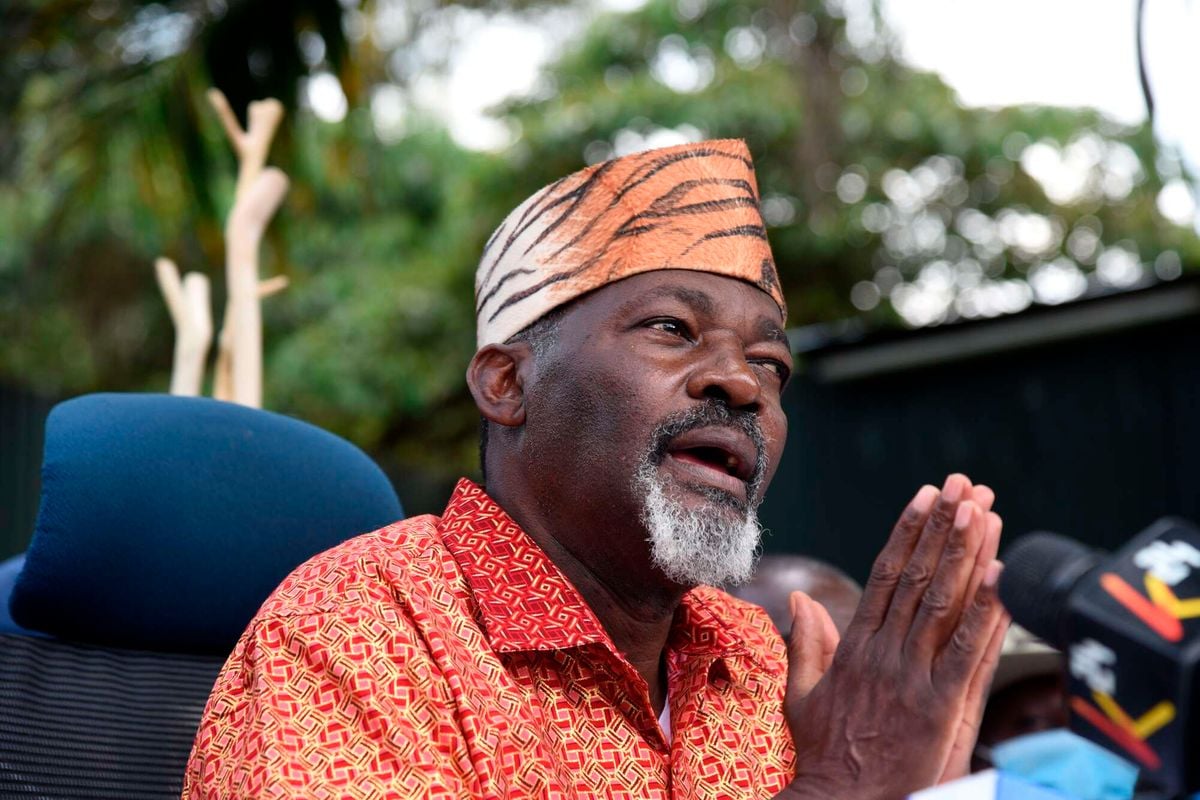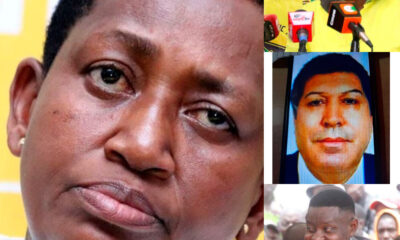News
Fresh Petition Targets Top Kenyan Judges Over Alleged Long-Running Corruption Scandal
Muigai urges the JSC to reopen all previously dismissed petitions and initiate proceedings to remove the named judges.

A new filing has reached the Judicial Service Commission, calling for the removal of Chief Justice Martha Koome, four Supreme Court justices, and six Court of Appeal judges amid accusations of systemic judicial corruption tied to a disputed estate sale and a decades-long legal fight.
Captain Kung’u Muigai, a retired military officer and Director at Benjoh Amalgamated Ltd, spearheads the case.
He claims bribes totalling more than KSh 825 million were funnelled to senior jurists to bend rulings in favour of Kenya Commercial Bank (KCB) in the sale of the 443-acre Muiri Coffee Estate.
Muigai maintains the property was improperly auctioned for a mere KSh 70 million.
A central claim is that several courts, including the Supreme Court, based rulings on a consent judgment dated May 4, 1992 that Muigai argues does not exist in the records.
He says the supposed order was used to dismiss his suit as res judicata, effectively ending his pursuit.
The document, which the Judicial Service Commission (JSC) formally received on August 19, 2025, names several high-ranking judicial officials.
The Supreme Court justices listed are Chief Justice Martha Koome, along with justices Mohammed Ibrahim, Njoki Ndung’u, Isaac Lenaola, and William Ouko.
Additionally, the document names six Court of Appeal judges: President of the Court of Appeal Daniel Musinga, Sankale ole Kantai, Milton Makhandia, Kathurima M’Inoti, John Mativo, and Francis Tuiyot.
Muigai outlines several payments he says were made to secure favorable rulings, including misappropriation of USD 3.5 million (about KSh 451.5 million) routed through an offshore Jersey account, allegedly via the spouse of former Deputy Chief Justice Kalpana Rawal, benefiting a Supreme Court panel that ruled against him.
Another, USD 2.5 million (about KSh 322.5 million) paid to a five-judge appellate bench to dismiss a review application.
A KSh 50 million incentive is also alleged to have been paid to a retired judge, GBM Kariuki, to declare the matter res judicata, even though one bench member, Daniel Musinga, was reportedly in India at the time of the ruling.
Allegations that Supreme Court judge Isaac Lenaola received KSh 1 million from a prominent law firm involved in the case.
Muigai reiterates that the 1992 consent judgment cited across rulings was never produced in court and argues it was misused to justify selling the Muiri estate.
In a letter to the JSC dated August 22, 2025, Muigai requests to testify in camera and present evidence, including statements from businessman Chris Musau and a former employee of a law firm linked to the disputes.
He contends that courts have repeatedly cited a non-existent consent order to deny him justice and accuses the judiciary of enabling KCB to auction the estate despite other assets serving as security for the loan.
The JSC previously rejected similar petitions from Muigai, saying the complaints did not meet the constitutional threshold for removal under Article 168 and that the judges acted within their legal powers.
Muigai argues that the petitions were reviewed without his input and now calls for an open, transparent process, drawing comparisons with accountability practices in other jurisdictions.
A new dimension is added by Muigai’s claim that the Shah community, led by industrialist Vimal Shah, is involved in a broader plan to relocate from Parklands to Mang’u.
He alleges the acquisition of several farms in the area—including Muiri—as part of a “hostile takeover,” with an initial figure of Sh500 million and ongoing probes by the Directorate of Criminal Investigations into Shah’s involvement.
Muigai urges the JSC to reopen all previously dismissed petitions and initiate proceedings to remove the named judges.
He asserts that presenting his evidence in full would reveal the extent of alleged judicial dishonesty and corruption affecting his case for more than three decades.
Kenya Insights allows guest blogging, if you want to be published on Kenya’s most authoritative and accurate blog, have an expose, news TIPS, story angles, human interest stories, drop us an email on [email protected] or via Telegram
-

 News2 weeks ago
News2 weeks agoTHE FIRM IN THE DOCK: How Kaplan and Stratton Became the Most Scrutinised Law Firm in Kenya
-

 Economy2 weeks ago
Economy2 weeks agoIran Demands Arrest, Prosecution Of Kenya’s Cup of Joe Director Director Over Sh2.6 Billion Tea Fraud
-

 Grapevine1 week ago
Grapevine1 week agoA UN Director Based in Nairobi Was Deep in an Intimate Friendship With Epstein — He Even Sent Her a Sex Toy
-

 Business2 weeks ago
Business2 weeks agoKPC IPO Set To Flop Ahead Of Deadline, Here’s The Experts’ Take
-

 Politics2 weeks ago
Politics2 weeks agoPresident Ruto and Uhuru Reportedly Gets In A Heated Argument In A Closed-Door Meeting With Ethiopian PM Abiy Ahmed
-

 Investigations1 week ago
Investigations1 week agoHow Mexico Drug Lord’s Girlfriend Gave Him Away
-

 Business2 weeks ago
Business2 weeks agoSafaricom Faces Avalanche of Lawsuits Over Data Privacy as Acquitted Student Demands Sh200mn Compensation in 48 Hours
-

 Investigations1 week ago
Investigations1 week agoHow Close Ruto Allies Make Billions From Affordable Housing Deals

















